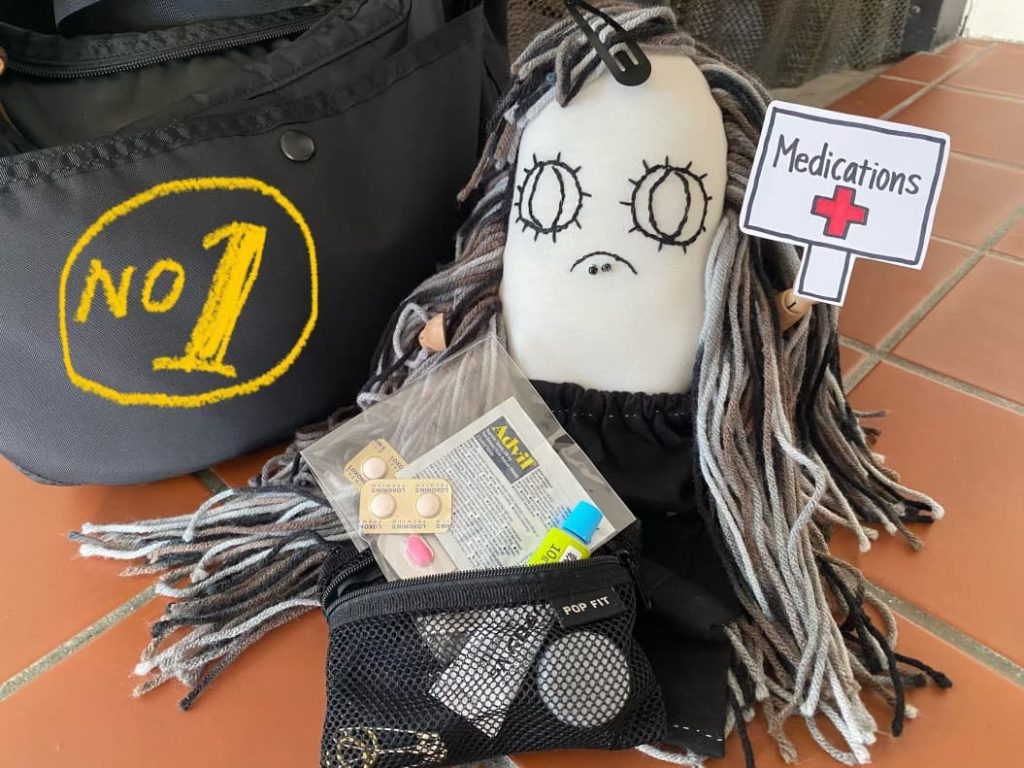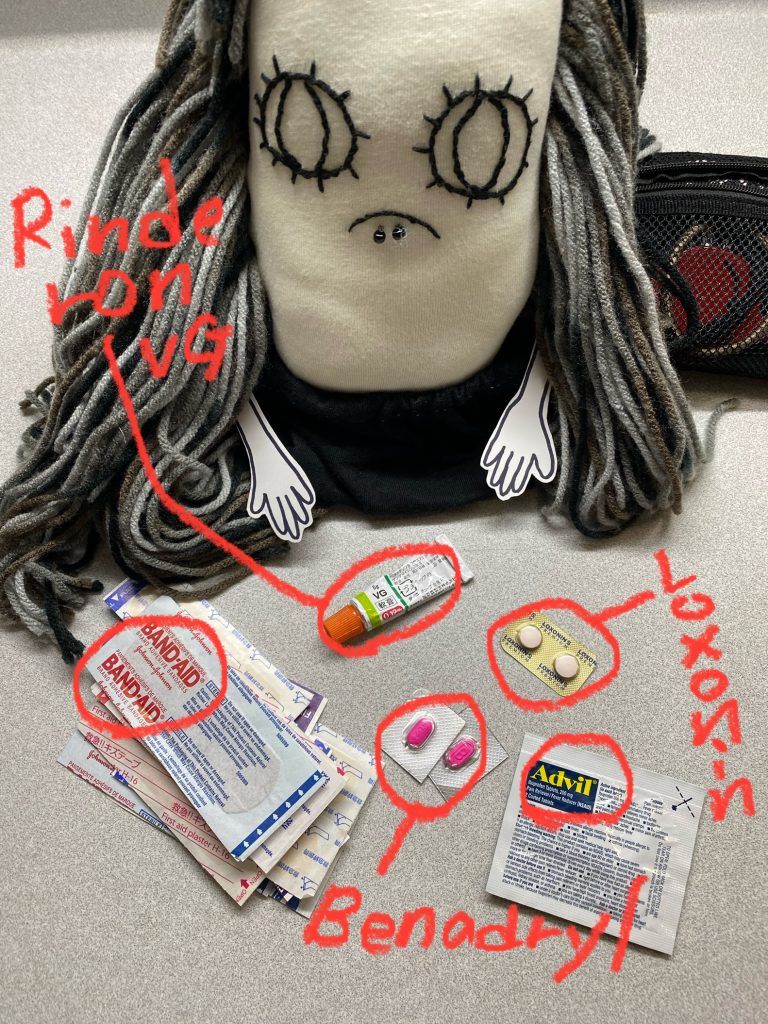
Which medications should I get for my emergency stockpile?
“I have some over-the-counter medicine… but is it enough?”
“I have been healthy, so I have no idea which medicines I should get.”
“I take medicine, every day.
What should I do in an emergency?”
Preparing medications for your emergency stockpile is neither simple nor trivial. Do not take it lightly. Each person has their own, unique, health conditions and requirements. And it could mean life or death. Even if you are healthy now, you might have serious health problems in an emergency. Everyone should take steps to protect themselves. We should not expect anyone else’s help, and there may not be any time to spare.
Even healthcare professionals, without medical equipment in an emergency: what can they do for us??
I am a nurse, and I sometimes think about how I can help with just the small bag I have now. I have realized that I can work as a nurse, effectively, only when I have medical equipment. Otherwise, without the proper supplies, I will be stuck. Outside of the hospital, I am relatively powerless. Therefore, I hope everybody prepares at least the minimum medications, by themselves.
In emergency situations, when deciding who should receive medical attention, more seriously injured patients are the higher priority. Less seriously injured people, and those with chronic conditions, are generally considered a lower priority.
Additionally, you can expect hospitals and drug stores to run out of supplies, quickly, if supply lines are broken. So, if you are currently taking medications, you must prepare extra refills. Do not wait until the day you run out to get more.
Please try to order a 60-90-day supply of medication, as far in advance as possible, so that you are more likely to have extras on-hand, in an emergency.
Important
• Keep an updated list of all medications in your compact emergency bag and emergency evacuation bag. Include the drug name, strength, and dosage, along with the phone numbers for your prescribing doctor and pharmacies.
• Carry your health insurance or prescription card, all the times, in your compact emergency bag. And put copies in your emergency evacuation bag.
How to set
When you set up medication for your emergency stockpile, there are 3 different places to focus on, each with its own requirements: the compact emergency bag, the emergency evacuation bag, and the short-term stockpile in your home.
Today, I will talk about setting up medication for your compact emergency bag.
★ The compact emergency bag
The compact emergency bag is for helping you get back home (or get to an emergency shelter) during a crisis. This bag is meant to be carried all the time, whenever you’re out and about, during the day. You would carry it, for example, to the office, at school, while shopping, etc. For this bag, you need to set up one dose (at least) of key medications to help you get home, to the hospital, or to a shelter.
I don’t take any medications now, but I carry these medications, for emergencies, in my compact emergency bag. Surprisingly, I use and replace them often. For example, whenever I have a rash, a bee sting, a headache, or a burn, I have a single dose handy. I would worry if I didn’t have these medications.

• Antihistamine (Benadryl) – 2 tabs
• Ibuprofen (Advil or Motrin) or Acetaminophen (Tylenol) – 2 tabs
• Steroid ointment (Hydrocortisone 1%) – 1 single dose packet
• Antibiotic ointment (Polysporin or Neosporin) – 1 single dose packet
• Bandages – 10 sheets
As seen in this picture, I use Rinderon VG (Steroid+Antibiotics mixed ointment)
which I got in Japan. Loxonin is Loxoprofen (an antipyretic and analgesic drug ) which I got in Japan, too.
The compact emergency bag will help you get back home or to an emergency shelter, during a crisis. Include one, two or three doses of each medication – at lease one dose. Or if you know you are going farther away, say you work in the next town over, you might want to set up a few additional doses.
When my kids were under 12, I used to carry medications for children + infants too. So, my mommy bag was big… but it was important. These medications are just for emergencies. You must choose your emergency medications carefully and consider your specific health conditions. Each person has different conditions, allergies, and preferences. Even if you’re only getting OTC medicines, you still should choose carefully.
I will talk about setting up medications for your emergency evacuation bag, in my next post.
See you next time.
Remember, “Protect your life by yourself” (自分の命は自分で守る). You need to survive first, and then you need your emergency supply. No matter how well you prepared your emergency supplies, if you die, then all of your preparations will have been for nothing. First and foremost, keep your health up all the time. Build your stamina so that if you need to, you can evacuate as quickly as possible. Stay healthy.